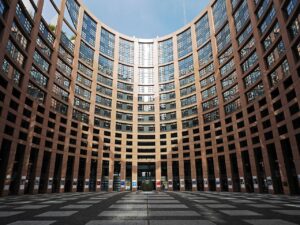The European Union (EU) is a political and economic union of 27 member states located primarily in Europe. The EU’s origins can be traced back to the aftermath of World War II, when European leaders sought to prevent another devastating conflict by promoting economic cooperation and integration. Over the years, the EU has grown in size and scope, becoming a global superpower and a symbol of successful regional integration. This article will trace the success story of the EU from its early days until 2021.
The EU was officially established in 1993, when the Maastricht Treaty was signed. However, the roots of the EU can be traced back to the European Coal and Steel Community, which was formed in 1951. This organization was created to regulate the production and trade of coal and steel between six European countries: Belgium, France, Germany, Italy, Luxembourg, and the Netherlands. The success of this organization led to the creation of the European Economic Community (EEC) in 1957, which aimed to create a common market between its member states.
Single market as a key success factor
One of the key successes of the EU has been the creation of a single market, which allows for the free movement of goods, services, capital, and people within the EU. This has greatly facilitated trade and economic growth, and has made it easier for businesses to operate across borders. In addition, the EU has created a common currency, the euro, which has further promoted economic integration and facilitated trade and investment within the EU.
Another important success of the EU has been its role in promoting peace and stability in Europe. The EU was founded in the aftermath of World War II, and one of its primary goals was to prevent another devastating conflict from occurring. Through its various policies and programs, the EU has helped to promote democracy, human rights, and the rule of law throughout Europe. It has also helped to resolve conflicts in the Balkans and Northern Ireland, and has played a key role in stabilizing Eastern Europe after the fall of the Soviet Union.
The EU has also been a leader in addressing global challenges such as climate change, terrorism, and the refugee crisis. The EU has committed to reducing greenhouse gas emissions by at least 55% by 2030, and has played a key role in international climate negotiations. In addition, the EU has implemented measures to combat terrorism, such as increasing border security and sharing intelligence information with member states. The EU has also provided significant assistance to refugees and has worked to address the root causes of migration.

Despite these successes, the EU has faced a number of challenges over the years. One of the biggest challenges has been the ongoing debt crisis in some of its member states, particularly Greece. The EU has had to provide significant financial assistance to these countries in order to prevent economic collapse and promote stability. In addition, the EU has faced criticism over issues such as immigration policy, the democratic deficit, and the lack of accountability of its institutions.
Great tasks for the future
Looking to the future, the EU faces a number of challenges and opportunities. One of the biggest challenges will be to maintain its unity and cohesion in the face of rising nationalism and populism in some member states. The EU will also need to continue to address global challenges such as climate change and terrorism, and will need to adapt to changing geopolitical realities such as the rise of China.
Despite these challenges, the EU remains a powerful symbol of successful regional integration and a model for other regions of the world. By promoting economic cooperation, democracy, and human rights, the EU has helped to create a more peaceful and prosperous Europe. As it looks to the future, the EU will need to continue to adapt and evolve in order to remain a relevant and effective force in the world.


